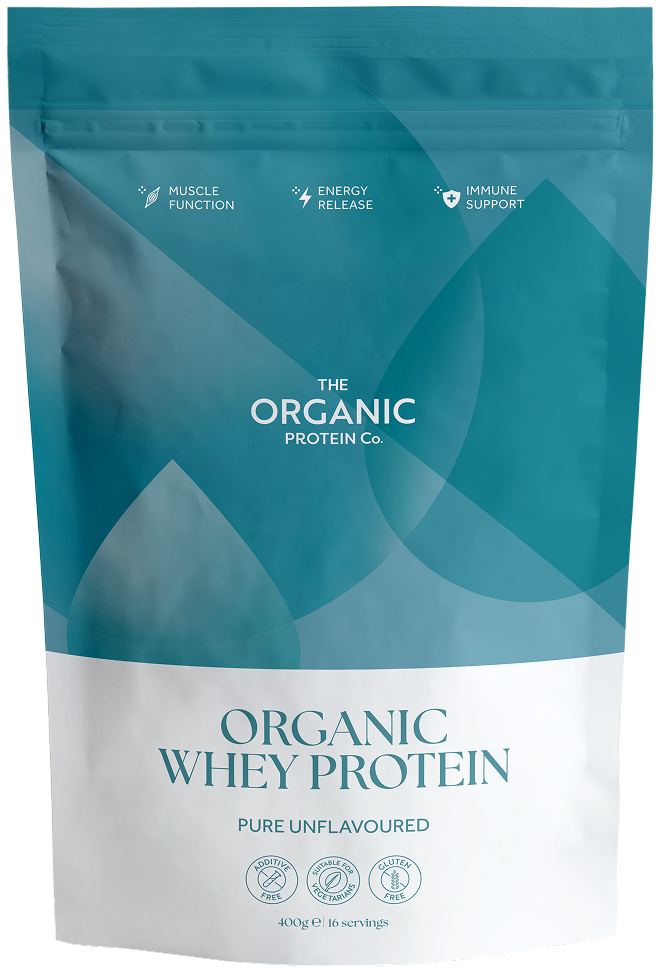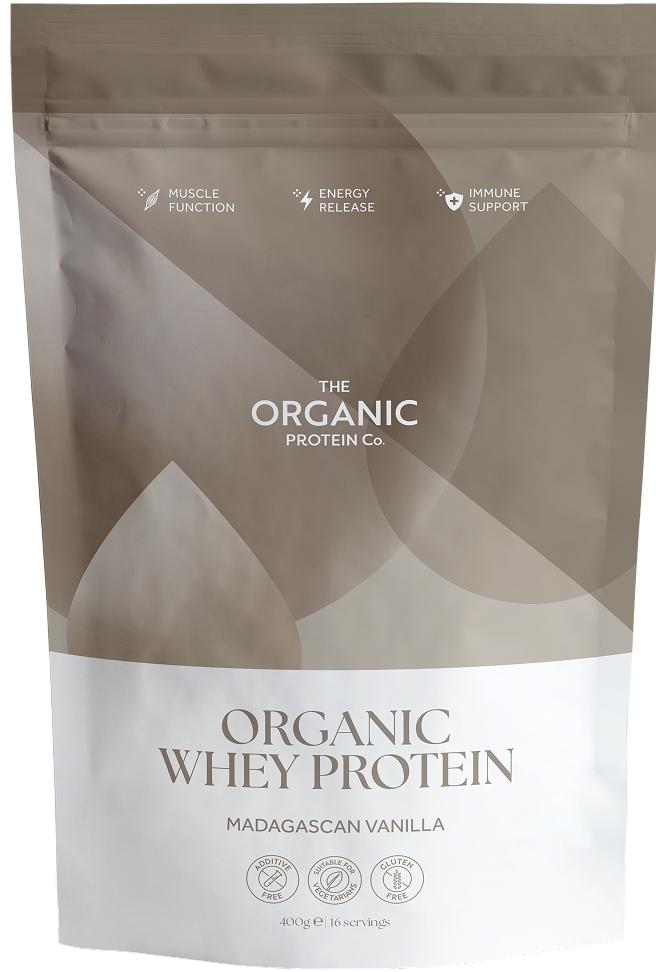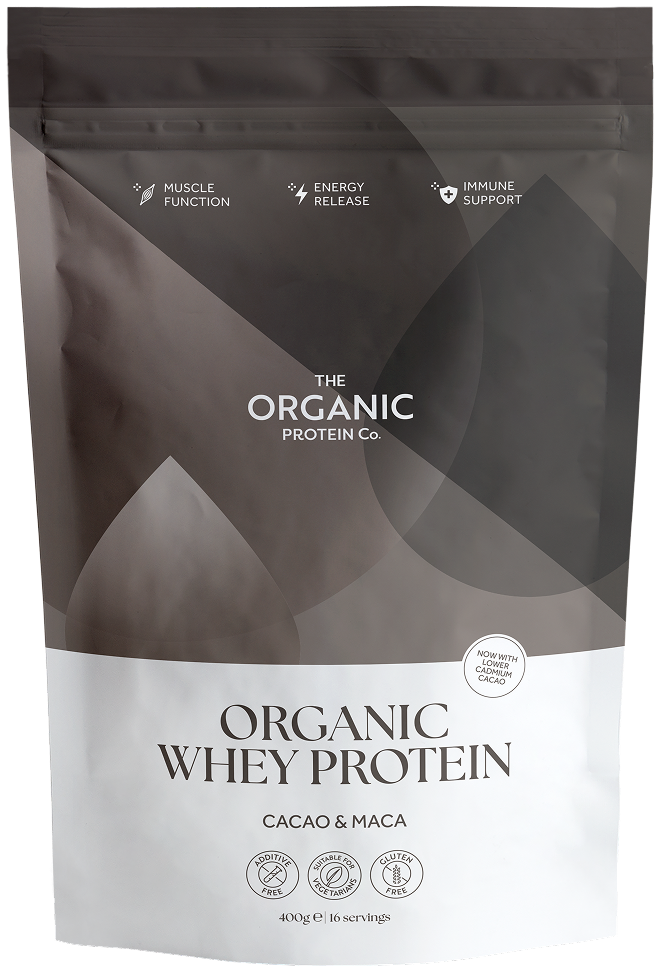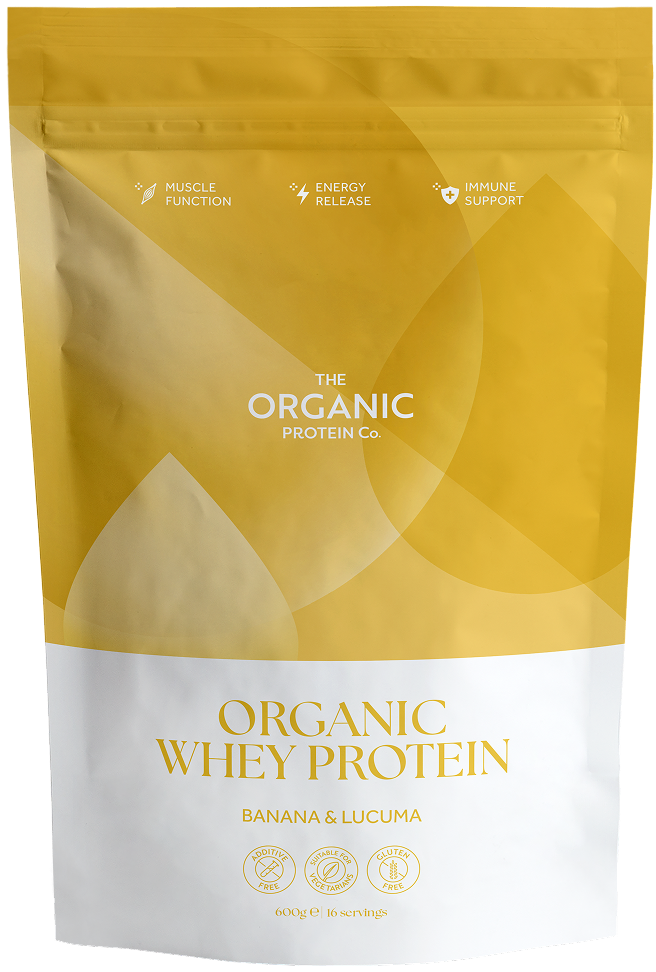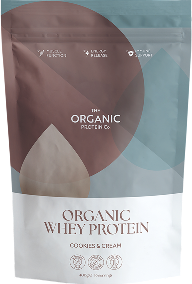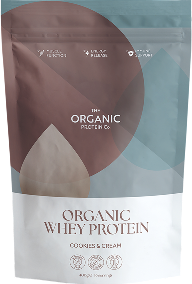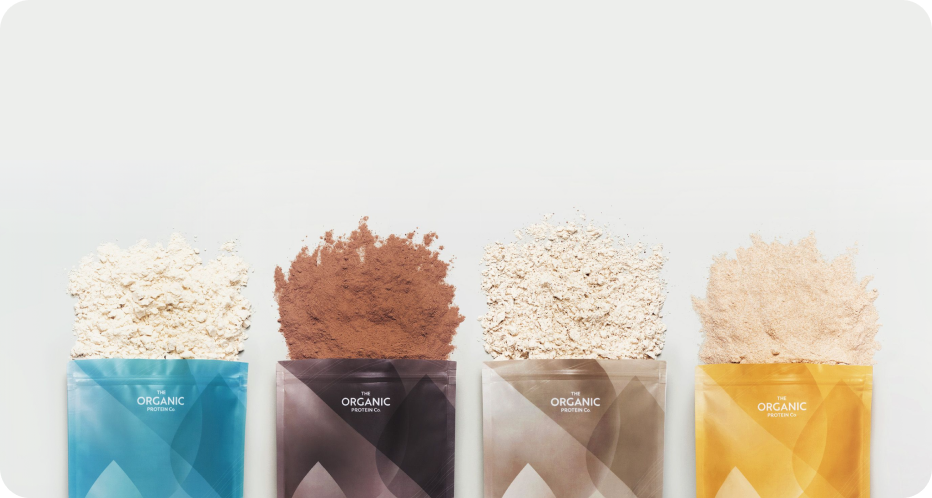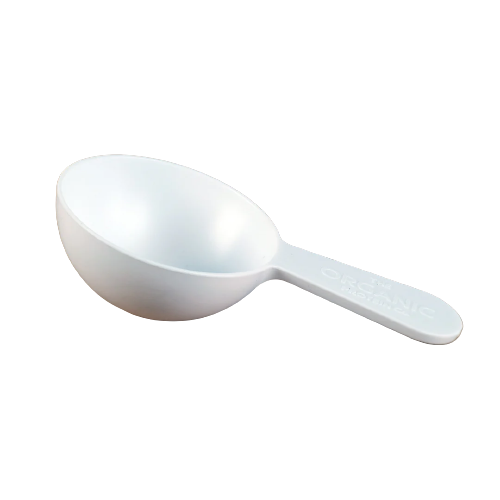Ozempic and Mounjaro are medications initially developed to manage type 2 diabetes by regulating blood sugar levels. (1,2) But in recent years, you might have heard of them spoken about in a different context; for their ability to support significant weight loss.
While Mounjaro and Ozempic can be effective tools for weight management, as the body requires fewer calories, it’s important to ensure that essential nutrients, especially protein, remain a priority. So, why is protein intake so important for those on Mounjaro or Ozempic? Below, we explore this in more detail.
The mechanics behind Ozempic and Mounjaro
Ozempic (semaglutide) and Mounjaro (tirzepatide) work by mimicking certain hormones in the body that regulate appetite, digestion, and blood sugar levels. Ozempic mimics the hormone GLP-1 (glucagon-like peptide-1), while Mounjaro mimics both GLP-1 and GIP (glucose-dependent insulinotropic polypeptide or gastric inhibitory polypeptide).
These hormones play a key role in slowing down digestion, which makes you feel fuller for longer and reduces hunger overall. This helps users of these medications consume fewer calories throughout the day, suppressing appetite and slowing the gastric emptying process.

Why nutrition remains important
While the appetite-suppressing effects of Ozempic and Mounjaro support weight loss by reducing calorie intake, this means the food you do eat while taking the medication becomes even more vital.
Consuming fewer calories often means eating smaller portions and fewer meals, which can make it harder to meet your daily nutritional needs, including protein, without planning and consideration.
What’s more, dietitians recommend lifestyle changes to complement the weight loss process with Ozempic and Mounjaro. Eating a balanced diet and staying active can help Ozempic and Mounjaro users maintain their weight loss even after their programme on the medication has ended.
Protein: a vital macronutrient for weight loss
Protein is a critical nutrient, especially when calorie intake is reduced for weight management purposes. It plays a central role in maintaining muscle mass, supporting metabolism, and keeping us feeling fuller for longer. (3,4)

Unlike fats and carbohydrates, which provide energy (5,6), protein primarily serves as the building block for your body’s tissues, enzymes, and immune system. (3) When eating less due to the appetite-suppressing effects of Ozempic or Mounjaro, getting enough protein becomes even more important for three main reasons:
Without enough calories or nutrients, your body may start breaking down muscle tissue for energy, leading to muscle loss and a slower metabolism. (7)
Protein also contains essential amino acids, which the body cannot produce on its own but are needed to maintain muscle, support tissue repair, and promote overall health. (8)
- Foods which are rich in protein also help you feel satiated for longer, complementing the effects of the weight loss drugs. (9)
How much protein do you need on Ozempic or Mounjaro?
In the UK, the general recommendation for adults is to consume around 0.75g of protein per kilogram of body weight per day. On average, this calculates to around 56g per day for men and 45g per day for women. (10)
If you’re taking Ozempic or Mounjaro, however, you might want to consider increasing your protein intake. It’s best to do this based on your personal needs, rather than a general recommendation. A doctor or dietitian can help you understand exactly how much protein you might need to preserve your muscle mass and keep yourself healthy.
Smart food choices on your weight loss journey
When managing your diet while on Ozempic or Mounjaro, you should prioritise foods that provide high-quality nutrients and support overall health. Choose nutrient-dense foods that ensure every meal counts toward maintaining muscle mass, energy, and overall wellbeing.
Alongside healthy fats and carbohydrates, and lots of fresh fruits and vegetables, here are some of the top protein sources to consider adding to your diet, if you haven’t already:

Protein-rich foods
- Lean animal proteins, such as chicken, turkey, and fish
- Plant-based proteins such as lentils, chickpeas, and quinoa
- Dairy products such as Greek yoghurt or cottage cheese
- Nuts, seeds, and legumes such as almonds, chia, peanuts
Foods to avoid
- Processed and fried foods: These are often calorie-dense but lack nutritional value, making it harder to meet your protein needs without overloading on unnecessary fats and sugars.
- Sugary snacks and refined carbs: Avoid foods like cookies, crisps, and pastries, which don’t provide the protein and nutrients your body needs to thrive.
Protein powders for a high-protein diet
Protein powders can be an incredibly convenient way to ensure you’re getting enough protein while on medications like Ozempic or Mounjaro. Although you should focus on whole foods primarily, a high-quality protein powder is a simple way to introduce extra protein into meals, smoothies, and shakes.
Here are some protein powder options you might consider:
- Whey protein: Whey is a fast-digesting protein and is rich in essential amino acids and BCAAs, which help feed and maintain healthy muscle tissue. (11)
- Casein protein: This slow-digesting protein is ideal for taking before bed, as it provides a steady release of amino acids, helping to support muscles throughout the night or between meals. (12)
- Plant-based protein: Options like pea protein and hemp protein are useful for those following a vegan or dairy-free lifestyle.

What to look for in a protein powder
Based on recommendations that a diet on Ozempic or Mounjaro should be protein-rich and free from unnecessary ingredients, some of the best protein powders will be:
- Free from added sugars: Avoid powders with hidden sugars that can spike blood sugar and increase unnecessary calories.
- Minimally processed: Opt for UPF-free protein powders made from whole, unprocessed ingredients to support your nutritional goals.
- Free from artificial additives: Stay clear of artificial sweeteners, thickeners, and emulsifiers, which could interfere with weight loss efforts.
Ways to increase your protein intake on Ozempic or Mounjaro
Incorporating protein into a busy routine doesn’t have to be complicated. Here are some simple yet effective ways to boost your protein intake throughout the day:
- Breakfast: Add a scoop of protein powder to your morning smoothie, oatmeal, or yoghurt. This is an easy way to get a high-protein start to your day without extra meal prep.
- Protein-rich snacks: Keep protein-packed snacks handy like nuts, seeds, Greek yoghurt, or a high-quality protein bar. These are convenient options to grab when you’re on the go or need a quick boost between meals.
- Meal prep with protein: Prepare meals ahead of time that prioritise lean proteins, like grilled chicken, turkey, or plant-based options like brown rice or lentils. These meals can be stored in the fridge for easy access during the week and help ensure that every meal is balanced with enough protein.

Final thoughts on nutrition on weight loss medication and protein
Maintaining adequate protein intake while on Ozempic or Mounjaro is key to keeping your muscles and body healthy during weight loss. Protein-rich foods and high-quality protein powders can make it easier to meet these needs, especially when your appetite is reduced.
Whether through whole foods like lean meats, plant-based proteins, or convenient protein shakes, focusing on clean, additive-free options helps you stay on track with your nutritional goals. Incorporating protein into every meal and snack will support your weight loss journey while keeping your body strong and well-nourished.

